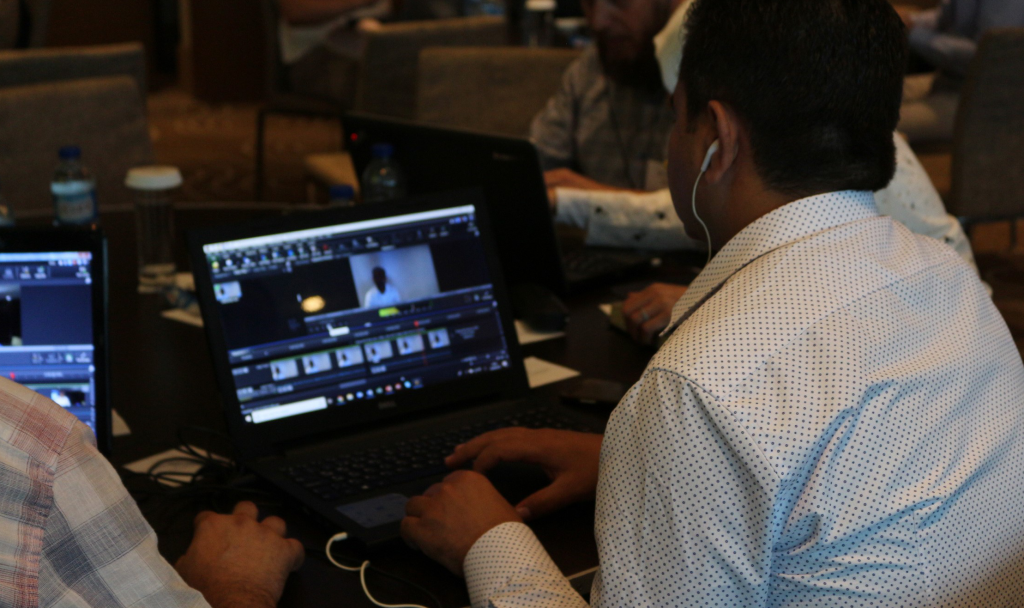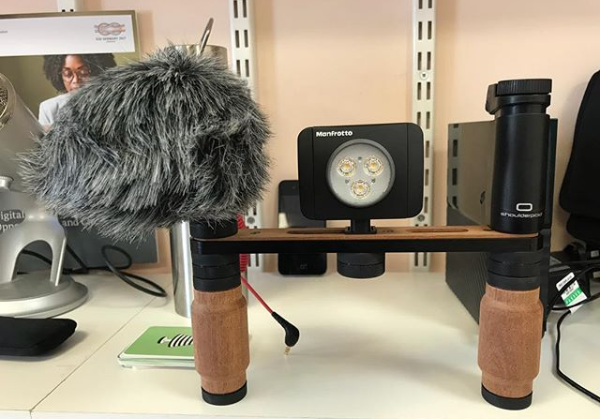
In this post, Dr Jen Ross, co-director of the Centre of Research in Digital Education, details an international three-day workshop on online teaching, which was delivered to a group of academics in Istanbul who had been displaced to Turkey by the Syria crisis. The visit was orchestrated by Jon Turner, Institute for Academic Development (IAD) director, and one of the University of Edinburgh’s key links with the workshop organisers: the Council for At-Risk Academics (Cara)…
In early September 2018, I, along with members of the Centre of Research in Digital Education – Michael Gallagher and Hamish Macleod (Centre for Research in Digital Education, University of Edinburgh) and Jon Turner (IAD, University of Edinburgh) – travelled to Istanbul to deliver a workshop on online teaching. The Digital Education team, with input from Cara and from the attendees, designed a workshop that blended practical, hands-on activities with sessions on online pedagogies, knowing your students, and considering the potential of digital spaces. We were extremely fortunate to have, among the workshop participants, Dr Shaher Abdullateef, an agricultural scientist who briefed the group about his successful online course on mushroom production aimed at building capacity in areas of Syria that have been hard-hit by protein shortages, and showed what an impact online education can make in Syria.
The hands-on activities were designed to take participants from an idea of who their learners are and what needs they have, to the development of a learning objective, to scripting and filming video content and creating interactive online activities to support this content.

A key part of the workshop involved participants in learning the basics of recording video content, using the DIY Filmmaking School approach, championed by Stephen Donnelley at the University of Edinburgh, and using smartphones and a handheld rig.
Why smartphones? Many, if not most, have a mobile device, and these devices are almost always on our person. Essentially we have a high-quality video camera and a means to record and broadcast content available at all times. It’s more immediate and more portable than a traditional camera. Users routinely carry out complicated tasks on mobile devices so filming on a smartphone removes barriers associated with having to learn a new technology. So we coupled participants’ smartphones with lights and external microphones and stabilised it on the rig in the picture below. Away the teams went to record their own content.

The dedication, expertise and creativity on show was impressive, and the final afternoon of the workshop was given over to presentations and discussions of the materials everyone had created.
The workshop was tremendously well-supported by Kate Robertson from Cara and by the English for Academic Purposes tutors. In particular, David Read from Sheffield led a great morning session on using Moodle, and was instrumental in providing the Moodle instance that participants can continue to use and develop after the end of the workshop. The translators worked hard to make sure that participants of all English language levels could engage. The workshop participants themselves made us welcome, asked excellent questions, contributed their creativity and insights, and worked very hard over the three days.

Feedback from the workshop was positive and constructive (thanks again to the translators for providing us with translations from Arabic):
I’m going to use skills I’ve learned in this course to teach students within my teaching specialty. I will inform my future colleagues about this method including creating teaching videos.
– Participant feedback
We didn’t necessarily convince absolutely everyone that, as we argue in our manifesto for teaching online, ‘online can be the privileged mode’, but colleagues were open to discussing and considering this and a range of issues and concerns that they were facing in their own subject areas and with their student groups.
Overall, we left feeling that our key messages had resonated for many, and that the skills and ideas from the workshop would continue to spread and develop:
Acquired skills will enable me to do online education in a professional way and teach refugee students from different nationalities. It will be of more use compared to face-to-face education.
– Participant feedback
In fact I’m interested in developing myself in this area, not only for teaching but also to increase my team’s abilities inside Syria. I remotely lead the team, therefore this knowledge is important for me to use in the near future.
– Participant feedback
*This article was previously featured on the Centre for Research in Digital Education website, and on the Edinburgh Global homepage.*

